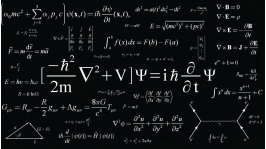Economics strengthened its position from the point of view of its inner development and social status over the last hundred years and is now one of the important leading sciences. Meanwhile, the economic decisions made by governments do not always prove to be effective. In most cases, miscalculations in this area are explained by the failure of professional economists to provide unambiguous and exhaustive answers to the questions posed before them and offer totally adequate methods of analysis and forecast. Without considering the subjective factors, let us take a look at the objective aspect of the problem which, to my mind, lies in the methodological peculiarities of economics itself.
First, I will discuss the subject matter and the tasks of economics. Proceeding from the thesis that science is a system of relations [1], the tasks of this discipline are to accumulate facts, systematize and interpret them, and draw appropriate inferences [2]. The first to offer a more constructive approach to the understanding of the object of economic research was J.S. Mill who asserted that this science studies man engaged in acquisition and consumption of goods [2, vol. I, p. 228]. A.Marshall’s theory was that economics treats goods as a tool for satisfying demands and as a result of efforts. He expanded his definition, which can now be considered classical, saying that economics studies the normal vital activity of human society that sphere of individual and social actions which is most closely connected with the creation and utilization of material elements of well–being. Consequently, economics studies goods and is also partly engaged in human research [ibid., p. 107]. Furthermore, economics explores peoples’ lives, development, and everyday thoughts. However, its main object of investigation are the motives most strongly and steadily influencing man’s behavior in the economic sphere of his life [ibid.]. In my view, Marshall’s definition is precise and comprehensive.
Strange as it might seem, this broad conception of the 19th century gave way to more pragmatic attitudes in the mid–20th century. As L.Robbins puts it, economics must analyze human behavior as a relation between the given objectives and limited means that can be used alternatively [3, p. 4]. L.Stoleru imparted a macroeconomic form to this approach by stating that finding ways of the most efficient use of national resources is the meaning of economics [4, p. 12].
E. Le Roy is believed to be the father of this pragmatism. He stated that science is but a rule of operation; therefore, it either precludes forecasting, which is devalued as a rule of operation, or it allows forecasting (in a more or less imperfect way) and then it is not unimportant as an instrument of cognition [1, p. 329]. L.Rogin extended such understanding of the value of knowledge to economic theory. From his point of view, the objective purport of the latter lies in recommendations concerning practical policies [3, p. 2]. A similar position was held by M.Friedman, the only difference was that he spoke of the precision of forecast rather than of practical recommendations [3, p. 651]. The above absolutely true notions finally shaped into an opinion that the criterion of the value of scientific doctrines was the ultimate objective of economics.
It is obvious that such a utilitarian approach cannot be used as a guiding principle. Some of the economic theories are devoid of concrete empirical content and exclusively serve for ordering information. There are also quite a few important economic theses and theorems, which, though dealing with economic behavior, do not make it possible to forecast it directly. Perhaps E.Mach was right in saying that the role of science is to work for the economy of thought like a machine saves power [1, p. 383]. In methodological terms, the danger of result–oriented pragmatism lies in the fact that there cannot be a science exclusively created for applied purposes. Truths are fruitful only if they are interconnected. If merely the truths are sought in order to bring in immediate results, the connecting links slip and the chain is broken [1, p. 282]. J. Hicks argued against primitive empiricism in economics, he stressed the value of theoretical constructions and the significance of the cause–and–effect analysis as such [5, p. 37].
By now, the subject–matter, goals, and value of economics have been defined quite clearly. Nonetheless, a heavy tilt toward economic pragmatism is observed in this country: applied investigations are intensified, while theoretical research has been curtailed. The adverse consequences of this trend manifest themselves primarily in the practical sphere. The dialectics of scientific research is such that theoretical findings help us understand the ongoing processes, which, in the final analysis, allows forecasting of the future events.
Science advances develop from augmenting and perfecting its laws, subjecting them to ever more rigorous tests, and widening the sphere of their operation [2]. If modern economic thought is science, in the strict meaning of this word, and there is hardly any doubt about it, it ought to have specific laws at its disposal. On the surface, all seems to be clear but try asking a professional economist to formulate a few economic laws. This author carried out a sort of sociological survey of fifty economists that have the academic degrees of Candidate and Doctor of Science and found out that practically none of them could recollect ten economic laws on the spot. Meanwhile, any physicist, for example, can easily formulate some three dozen physical laws. This fact (let us call it “the paradox of unknowing”) has objective roots to be found in the special character of economic laws.
We shall consider this matter following a deductive line of presentation. First, what does a law mean? The accepted interpretation reads: the essential and stable inner relation of events responsible for their ordered change [6]. In H.Poincare’s more operational interpretation, a law is the relation between condition and result or a constant relation between the previous and the subsequent, between the current and immediately following state of the world. Relations, or connections, are expressed by equations, and if equations stand true, the sought–for relations retain their realness [1, p. 131]. In its turn, any relation can be represented by a geometric curve. Consequently, any law has such a meaning provided that this law is expressed in mathematical terms. Experience shows that practically all verbal formulations that have meaning yield to mathematical representation; if not, a verbal construction is nothing but a banal statement of some cause–and–effect connections and cannot claim to be a universal law.
Therefore, an economic law, like any other law, is to be expressed in mathematical terms. It is safe to say that the principal, though not ultimate, goal of present–day economics is to establish qualitative relations between economic variables. It is a legitimate hope to overcome economic stochasticity and uncertainty only after this goal is achieved.
Hence, economics belongs to exact sciences rather than to the humanities, as was customarily believed. To be more exact, economics can be referred to as part of humanities by the type of the objects it studies, while the methodological instruments used in economic research place it in the rank of exact sciences. This is evident from the abundance of figures, tables, models, diagrams, formulas, equations, and theorems employed by economics.
The mathematics of economics is on a par with physics. It is worthy to recall that one time general physics branched off and one of its departments was later called mathematical physics. The same happened to economics, and mathematical economics now occupies a deserved position in the system of economic knowledge. What then prevents the economists from operating their own laws as successfully as the physicists operate theirs? The problem lies in the specific nature of economic laws. In his time, Marshall wrote that economic laws cannot be compared with the law of gravitation in the sense of precision and should be better compared with the laws of sea tides [2, vol. I, p. 88]. Delineating the place of economics in the system of scientific knowledge, Marshall asserted that it is not closely related to a physical discipline, but is more like a broad branch of biology [2, vol. Ill, p. 210]. M.Blaug went further by stating that as the status of the criterion of refutability is concerned, economics occupies a middle position between psychoanalysis and nuclear physics [3, p. 654]. To my mind, a great similarity comes to view when comparing economics with meteorology; both confront highly elusive and dynamic regularities and effects. In this connection, the opinion of A.Gray is interesting, who thought that economics differs from other sciences in that it does not imply an inevitable transition from smaller to greater certainty, or an irrevocable urge to go to the end, so that a truth once discovered becomes truth forever [3, p. 2]. The aforesaid leads one to a conclusion that economics cannot be equated with exact natural sciences, because it deals with ever changing and subtle properties of human nature [2, vol. I, p. 69].
Now, in what way does the special character of economic laws and economic science manifest itself? Let us begin with the fact that economics is a colossal conglomerate of separate economic researches rather than a single commonly adopted theory. Many paradigms clarifying one or another problem more often than not do not join together and cannot be harmoniously united within the framework of a single concept. Such fragmentation, as well as the result–oriented character of economics are attributable to the objective multifaceted nature of the socioeconomic environment, which defies complete modelling of its functioning. In my view, the infinite variety of economic objects is the first specific feature of economics. In terms of methodology, inclusion of additional m–factors in the analysis is the same as to move from the initial n–dimensional economic space to an (n+m) – dimensional space. Such expansion of the frames of economic analysis usually results in a fundamental restructuring of the initial theory. In other words, n–dimensional and (n+m) – dimensional theories cannot be reduced to each other. As for a set of factors in economics, their body is formed subjectively, as was mentioned above, depending on the purpose of analysis. It is pertinent to note in this context that the elementary–particle physics once experienced great theoretical difficulties primarily because of the numerous physical effects which required a systems explanation. This problem is ever more challenging in economics, because it blocks the construction of an all–embracing global synthetic concept.
The limited operation of economic laws is the second specific feature of economics. Economic laws are not universal theses which would always be true everywhere. On the contrary, they are relative in principle and valid only in well–defined conditions. In other words, an economic system can function in various conditions for which different quantitative laws are applicable [7]. In this sense, clear–cut identification of the desired economic behavior is a key task of economic analysis, which is expedient for the subsequent efficient use of appropriate laws. The fathers of political economy were well aware of this fact. Marshall wrote that economic laws generalize tendencies characterizing man’s actions under certain conditions. They are hypothetical in the same sense as the laws of natural sciences and, for the latter, contain or imply the existence of certain conditions. However, it is more difficult to clearly formulate these conditions in economics than in natural sciences [2, vol. I, p. 95]. It can be added to the aforesaid that as the limits of economic laws are much narrower and the system often exceeds them, these laws are less significant than those of exact sciences. However, economic laws embrace most probable, or most typical, states of the system and here lies their value. The difficulties involved in the delineation of law operation limits create a situation paradoxical at first sight. I mean the nearly complete absence of generally accepted economic laws and theories. Almost all of them are disputed. Take, for instance, the law of demand which reads: a commodity price increase results in a decrease in demand. This dependence is operative in the majority of cases. However, it is evident from economic practice that a heightened price for some commodity can cause a reverse response, known as the Giffen paradox. True, such commodities are a rare exception, but they do exist and thus limit the sphere of the law operation.
The third specific feature is the predominantly weak form of many economic laws. As was mentioned above, an equation is the highest form of any law. Meanwhile, economics deals more with the laws represented by nonrigid, or weak forms, in other words, by inequalities. Weak stucturalization is derived from incomplete information about an economic object. Methodologically, this feature is closely related to that described above. Indeed, law–inequalities result automatically in the dichotomy of the operation modes of economic systems, one of which characterizes the domain where a given law is obeyed and the other, the domain where it is broken, or where its effect is quite the opposite.
The birth and maturation of the “dichotomic” ideology of economic analysis was followed by the emergence of marginalism, which can be interpreted broadly or narrowly. Broad interpretation suggests the employment of a mathematical body of infinitesimals; narrow interpretation implies the employment of the category of a utility function. The principles of marginalism took root in economics, and now most economic laws are written in a differential (incremental) form. Below are a few examples of law–inequalities in the marginal form. Say’s law of markets: supply calls forth its own demand (dD/dS>0), where D and S are demand for and supply of commodities; the law of meeting public requirements; demand calls forth supply (dS/dD>0); Gossen’s law: marginal utility of goods diminishes as they are consumed (d2U/dxj2<0), where is the volume of consumed goods and U=U(x) is the function of economic goods utility; Hick’s law marginal rate of economic goods substitution increases d2xi/dxj2>0, where xi and xj are the volumes of ith and jth consumed goods; law of demand: (dD/dP<0), where P is commodity price; the law of supply: growth of commodity price results in increased supply of this commodity (dS/dP>0), etc.
The nonrigidity and looseness of economic laws is an important factor which gives no way of uniting them into a single and consistent whole. Most of them exist predominantly in an implicit (latent) form, that is, the laws are implied but not neatly formulated, which engenders the “paradox of unknowing.” This circumstance underlies the common opinion that the term “economic law” is misleading because it suggests high precision, universal application, and even moral justice. For this reason C.R.McConnell and S.L.Brue use the terms “law,” “principle,” “model,” and “theory” as synonyms [8], which, in my view, still further complicates the understanding of the specific character of economics.
At present, the weak form of economic laws makes the basis of the entire qualitative calculus in economics (P.Samuelson, see [3]). Indeed, most of relevant theory is not quantitative in character and deals only with the signs of derivatives. Hence the peculiarity of many forecasts, namely, the attempts to predict the direction of probable changes rather than their magnitude. By the same reason it appears problematic to reveal exact relations between economic laws themselves, for this requires taking into consideration the force of their action which is far from constant. Now, if we fail to establish the place of a law in the general system of economic knowledge, we shall come to the “paradox of unknowing” again.
Discussing the specific character of economic laws, one should distinguish them from econometric laws. L. Stoleru demarcates them by saying that the first are based on reasoning about the behavior of economic entities, while the second, on the correlations of the past. Of course, this differentiation is conventional, because there are constant links between theoretical reasoning and facts [4]. The concepts of causality and correlation underlie the above differentiation [8]. An econometric law establishes correlations between phenomena and demonstrates their systems interdependence, which is sometimes temporary and random, while an economic law reveals deep–rooted cause–and–effect relations. These laws are not interchangeable. The dialectics of their interplay is rather simple. Because of their slack form, economic laws often need to be specified numerically. This is achieved by obtaining the corresponding econometric dependencies featuring concrete coefficients. The qualitative gaps of economic laws are filled in this way, and their form turns from “weak” to “strong,” to that of equalities. On the other hand, knowing the interdependent variables, it is necessary to limit the examination of correlations. Here economic laws come into play, making it possible to disclose probable relations between variables. The rest boils down to checking actual relations by way of getting a satisfactory degree of correlation [4].
The fourth specific feature of economics, closely related to the third one, is the absence of universal economic constants. This is a key fact for the understanding of methodological complications confronting the economists. For instance, in order to take on practical significance, an economic law must be expressed in the form of an equality, which presupposes the availability of some definite coefficients of proportionality. If the latter are constants, the law can be applied at any length of time. Precisely such laws are typical of natural sciences, especially physics. For instance, Planck’s, Rydberg’s, fine structure, screening, and other constants feature in quantum mechanics and Oort’s, Boltzmann’s, Roche’s, Hubble’s, Lyapunov’s, gravitation, light velocity constants in astrophysics.
There are no similar universal determinants, or universal constants, to according Simon’s term [9] in economics. At any rate, not a single functional economic dependence with temporally constant parameters have been found so far. Meanwhile, it is precisely the universal constants that hold together scientific theories. If they are unavailable, there is no foundation for strict analytical constructions and forecast calculations. Neither general laws of universal constants or temporal changes have been deduced. These problems are partially settled in practice by obtaining econometric dependencies. However, the latter are not of universal nature and operate with a definite degree of accuracy only within a limited time interval. Thus, all economic variables and parameters move in time, but all attempts to trace the general patterns of their movement even using the most up–to–date research tools failed. It can be said that the stumbling block on the way to formalizing economic processes is the time factor with its independent impact on the actual situation.
In the absence of universal economic constants one circumstance comes into view, namely, that unlike inanimate nature whose behavior is stable and, consequently, its laws and their manifestations are constant as well, man and society are far from stable. Here, we observe the utterly limited utility of the mathematical apparatus in describing socioeconomic processes. Mathematics is a highly efficient tool in the study of primitive worlds, such as mechanical, physical, or chemical, but supercomplex, superfine, and ultra–dynamic processes going on in socioeconomic systems defy efficient mathematization. This is one of the weaknesses of economic laws. For this reason, even purely theoretical investigations are often made with simulation and behavioral models based on the cybernetic concept of large–scale systems.
Thus, it is worth refer to Marshall’s warning. He wrote that although a mathematical illustration of the interaction of a certain group of causes can be perfect per se and absolutely accurate within its limits, any attempt at representing some real–life complex problem in full or at least its significant part by a set of equations is doomed to failure, as many important aspects, especially those related to diverse effects of the time factor, do not yield easily to a mathematical expression; therefore, they have to be either omitted completely or narrowed and cut in such a way that they come to resemble birds and beasts in ornamental art. This engenders a trend toward distorted reflection of economic proportions. An economist should be always aware of this danger, more than of any other. However, to evade it would mean limiting the utilization of the principal vehicles of scientific progress [2, vol. П1, p. 322].
The asymmetry of many economic dependencies is the fifth specific feature of economics. In other words, socioeconomic systems have direct and inverse correlations whose effects are asymmetrical in principle. Here is a simple example. In most cases, by virtue of the law of demand dD/dP<0, the demand curve D=D(P) has a characteristically negative inclination, i.e., when a commodity price grows, the demand for it drops. Formally, it would follow that if demand for a commodity grows, its price will drop: dD/dP<0. In reality, quite the opposite effect is observed, i.e., growth in demand results in price growth: dD/dP>0. Thus, we have a semantic contradiction. Consequently, most of economic dependencies operate in only one direction and characterize either a direct or inverse correlation between economic variables. This means that the phenomenon economic hysteresis is characteristic of most economic relations, which places restriction on the applicability of economic laws and derivations therefrom.
This aspect of the problem is conjugate to the general laws of the cybernetic systems functioning by the feedback principle [10]. Man and society, which are highly developed cybernetic systems, belong to animate nature which encompasses the highest forms of matter motion known to date. It is believed that one of essential features distinguishing these systems from more primitive ones are the newly emergent qualities – optimal and result–directed behavior [11] (some authors use the terms rational and purposeful [6]). This property imparts a irregular, outwardly stochastic character to many functional economic dependencies. In addition, stable cybernetic systems manifest direct and inverse correlations opposite in sign: one is positive and the other negative. If the signs are identical, the system shatters [10]. A direct consequence of this is the asymmetry of functional relations in economics mentioned above.
The sixth specific feature is the nonverifiability of many economic constructions, including basic economic laws. For example, the modem economic analysis operates such categories as demand, supply, commodity utility (value), labor burden (uselessness), economic expectations, etc. Many of them cannot be observed and estimated directly, though methods of indirect assessment are used in practice. In particular, although the notion of demand seems to be quite natural, it is absolutely unclear how it can be calculated for a particular situation, especially in the case where demand exceeds supply. The notions of consumed and produced goods utility and labor burden are even more abstract and cannot be subject to assessment. However, if these categories are withdrawn from scientific circulation, economics will turn into a shapeless mass of empirical facts, because precisely these poorly verifiable characteristics make all economic constructions conceptually integral. K.Boulding aptly remarked that theory without facts might be empty, but facts without theory are senseless [6, p. 21]. Besides, the macroeconomic character of many analytical constructions further complicates their verification, because the greatest part of statistical information is available in aggregate form, that is, refers to macroeconomics.
Still, it would be wrong to think that the above economic terms are speculative and abstract. In my view, there is an evident analogy between utility in economics and energy in physics, between demand for commodities in economic theory and the wave Ψ–function in quantum mechanics. In spite of the fact that these variables cannot be directly measured, they exist objectively and are indispensable in research. On the whole, as it is impossible to carry out a controllable experiment in social sciences, the economists simply need much more facts than, say, physicists, to reject a theory.
Finally, the last, seventh specific feature of economics: the subjective ideological coloring of its practical recommendations. In this connection, a comparison made by Karson seems appropriate. He noticed that economists are usually looked at as if they were either doctors or mechanics. Doctors study medicine in order to cure diseases and improve people’s health; mechanics are to be able to detect a failure in a machine and repair it. Correspondingly, economists study economies and must know how to heal or mend an economy, no more and no less than that [12]. However, Karson aptly says further, that recommendations from economists, even if they were absolutely unbiased in their evaluation of the available data, can be eventually interpreted differently, either from their own point of view, or from the standpoint of the worldview dominant in society. Consequently, economics as a research into human behavior and convictions cannot escape biased opinions; economics is a discipline which cannot be free from ideology. Thus, in practice economics turns out to be not so much a science but more of an art, because it is based on subjective judgements rather than on formal proof [12, p. 96].
In conclusion, let us present a few more words about the role of economics. Its true significance is probably in that the functioning of economic systems is understood today better than ever before. As for its role, it will be enough to recall J.M.Keynes’ remark on how economic ideas influence political decision–making. He said that practical investigators, who sincerely believe in their intellectual independence, in actuality are usually slaves of the ideas of some defunct economist [12, p. 93]. In this sense, the development of economics gives a certain guarantee against global economic blunders and miscalculations.
References
1. Poincare, A., О Nauke (On Science), Moscow, Nauka: 1990.
2. Marshall, A., Printsipy Ekonomicheskoi Nauki (Principles of Economics), Moscow: Progress, 1993, 3 vols.
3. Blaug, М., Ekonomicheskaya Mysl’ v Retrospektive (Economic Thought in Retrospective), Moscow: Delo, 1994.
4. Stoleru, L., Ravnovesiye i Ekonomicheskii Rost (Equilibrium and Economic Growth), Moscow: Statistika, 1974.
5. Hicks, J., Stoimost’ i Kapital (Cost and Capital), Moscow: Progress, 1993.
6. Filosofskii Slovar’ (Dictionary of Phylosophy), Moscow: Politizdat, 1960, p. 147.
7. Balatskii, E.V., Marginal Properties of Economic Systems, Mir. Ekon. Mezhdun. Otn., 1995, no. 7.
8. McConnel, C.R. and Brue, S.L., Ekonomiks: Printsipy, Problemy i Politika (Economics: Principles, Problems, and Politics), Moscow: Respublika, 1992, vol. I, p. 26.
9. Simon, D., The Functional of Economic Development, Ekon. Matemat. Metody, 1992, vol. 28, no. 3.
10. Petrushenko, L.A., Pr'mtsip Obratnoi Svyazi (The Principle of Feedback), Moscow: Mysl, 1967.
11. Petrushenko, L.A., Samodvizhenie Materii v Svete Kibernetiki (Self–Motion of Matter in the Light of Cybernetics), Moscow: Nauka, 1971.
12. Karson, R., What Do the Economists Know?, SShA: Ekon., Polit., Ideol., 1994.
Official link to the article:
Balatskii E.V. Economic Analysis Today: Principles, Approaches, and Paradigms// «Herald of the Russian Academy of Sciences». 1995. Vol.65, no.6, pp. 476–480.









